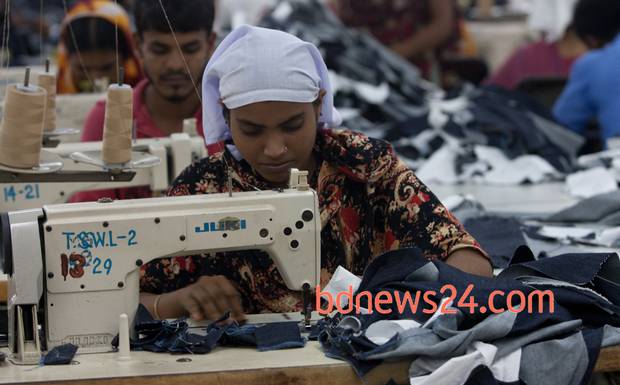Bangladesh has not done enough to improve labour standards — so it was not yet time for the US to revive the GSP, senior US labour officials told a Senate Committee hearing recently.
The Generalised System of Preferences (GSP) provided for duty-free access to 5,000 Bangladesh products in the US markets until they were cancelled last year.
Ready-made garments, Bangladesh’s main export item, was however not in the US GSP list.
Senior Labor Department official Eric Biel said the US conveyed to Bangladesh in late January that despite progress in some areas, Dhaka has not done enough under an action plan laid out by Washington for restoration of GSP.
Washington suspended the GSP last June, two months after the collapse of the Rana Plaza that killed more than 1,100 workers of the ready-made garment factories in the building.
The US Senate Committee on Foreign Relations held the hearing titled ‘Prospects for Democratic Reconciliation and Workers’ Rights in Bangladesh’ on Tuesday.
Biel, the acting associate deputy undersecretary for international affairs at the US labour department, admitted that there were indications of progress in some areas of the action plan.
“However, as has been conveyed specifically to the government of Bangladesh, a great deal remains to be done to implement some of the most important elements of the Action Plan,” he added.
Biel highlighted allowing trade unions in the garment industry, which he said ‘was still at an early stage’.
He said the US would see whether the recent approval of more than 100 trade unions has made a difference on the ground, as such efforts did not yield results in the past.
The US and other international partners needs to continue “to hold the government of Bangladesh’s feet to the fire”, said Biel.
The next review on restoring GSP is due in May, Lewis Karesh, assistant US Trade Representative for Labour Office said.

Senator Robert Menendez, who heads the Senate committee, was skeptical of reported progress by Bangladesh, saying that the nearly 100 unions registered so far included only 40,000 of 3 million garment industry workers in them.
He said factory owners, like government, needed to appreciate the cost to reputation of compromising on safety and labour standards.
“I hope factory owners understand that it would be very difficult to sell clothing made in Bangladesh if it’s on the blood of workers.
“Any progress we make on labour issues is taking place in a very tenuous political environment,” said Menendez.
Speaking at the hearing, Nisha Desai Biswal, Assistant Secretary of State for South and Central Asian Affairs said: “We will continue to push for urgent reforms to improve worker rights and safety in Bangladesh.”
The hearing also discussed Grameen Bank.
Senator Dick Durbin took the government of Prime Minister Sheikh Hasina to task for pushing Nobel peace laureate Prof Muhammad Yunus out as managing director of the Grameen Bank.
Durbin described it as a “crass political move to punish him in some way and sadly to punish millions of people who depend on that bank to survive.”
Nisha Biswal echoed that sentiment, saying the bank’s mission in helping poor women and families was under threat.
“That is a deep shame and travesty.”
Scott Nova of US-based Worker Rights Consortium, Ellen Tauscher, chairman of Alliance for Bangladesh Worker Safety, and Kalpona Akter, executive director of Bangladesh Centre for Worker Solidarity, also testified before the Senate committee.
Source: Bd news24










